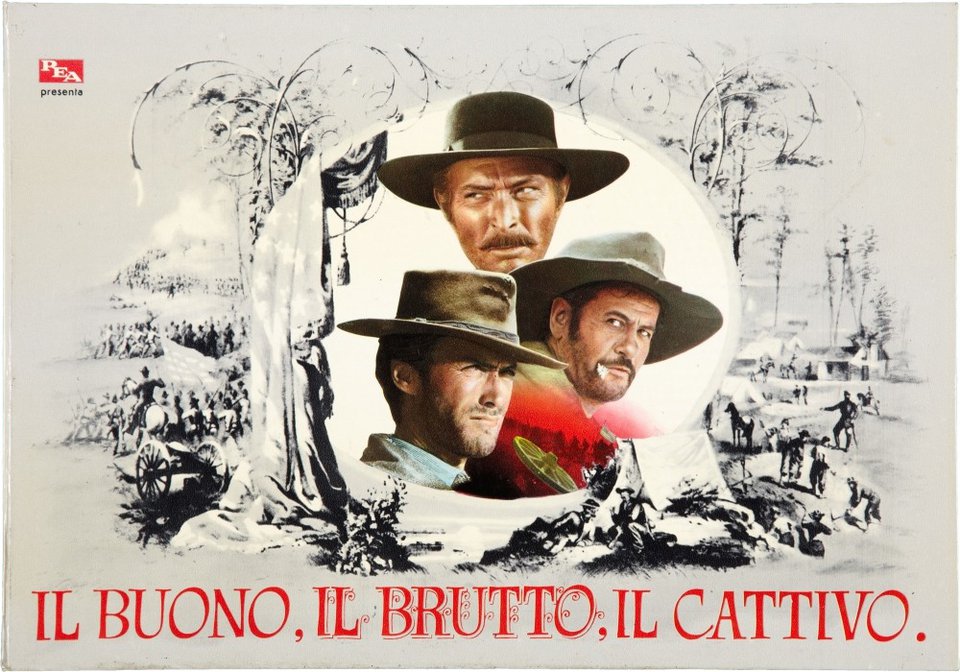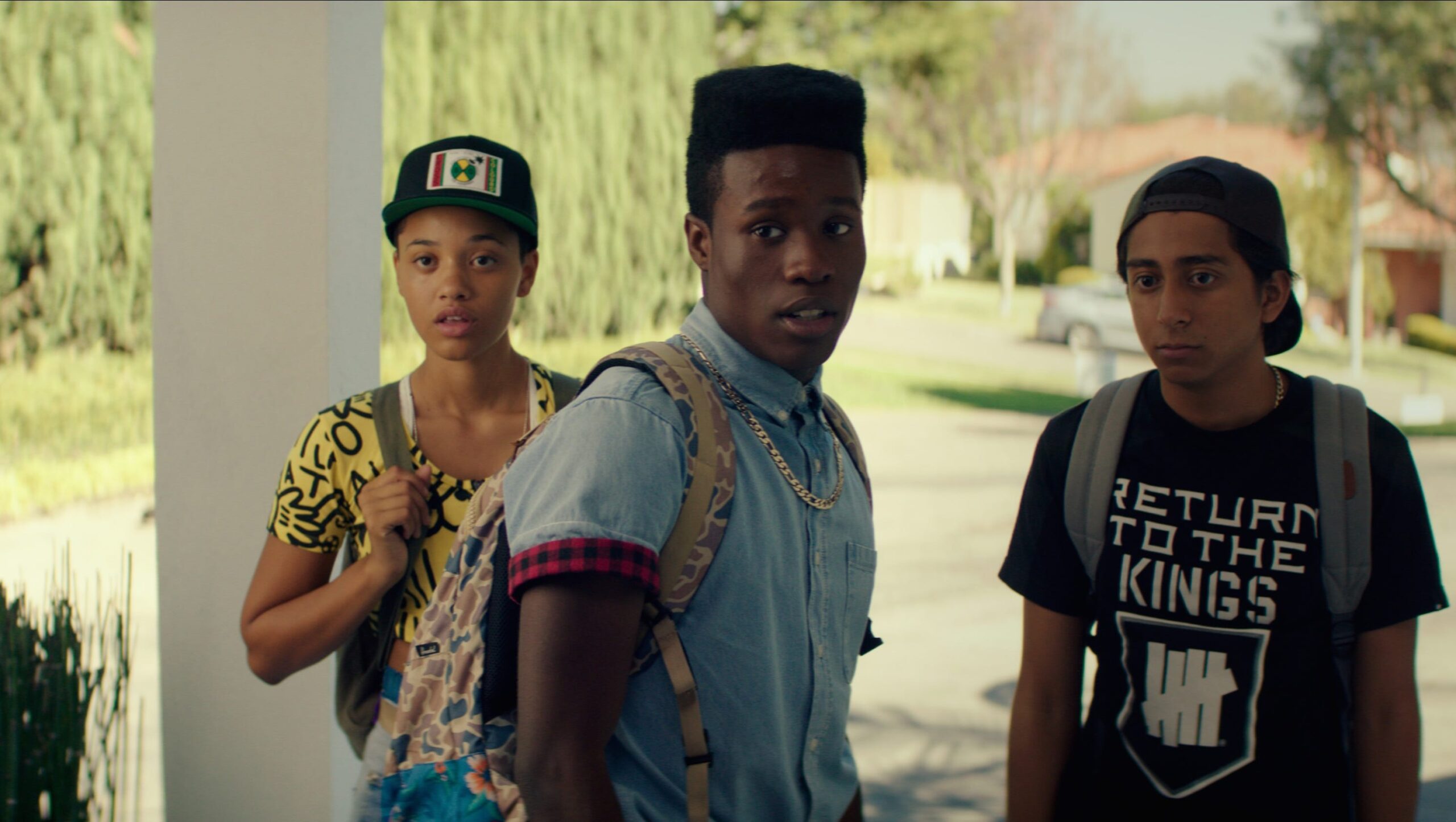
Hollywood is a land of dreams, where stars rise and fall with the ebb and flow of critical acclaim and box office success. For many actors, a single iconic role can catapult them into the stratosphere, cementing their place in pop culture history and opening doors to a future filled with lucrative projects. We love to celebrate those incredible highs, the moments when a performance just clicks and everything aligns perfectly.
But let’s be real, it’s not always sunshine and rainbows. Sometimes, in this unpredictable industry, a film project can go spectacularly wrong. We’re talking about those movies that don’t just flop; they crash and burn so spectacularly that they leave a lasting, detrimental mark on the careers of the very stars who poured their talent into them. It’s a harsh reality, but even the most beloved actors aren’t immune to a colossal cinematic misstep.
Today, we’re taking a deep dive into some of those infamous examples. We’re going to look at the flicks that, for various reasons, became black marks on otherwise stellar résumés, forcing once-bright stars to either fight for a comeback or pivot their careers entirely. Get ready to revisit some truly unforgettable, for all the wrong reasons, movie moments and discover how they sent some big names tumbling.
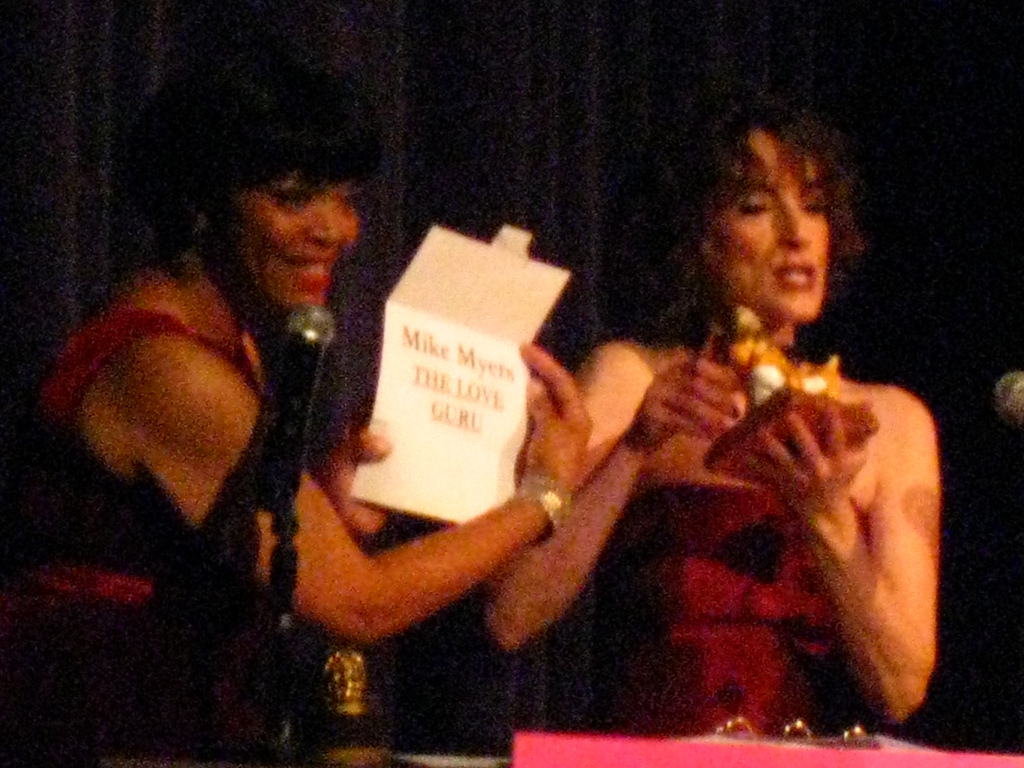
1. **The Love Guru (Mike Myers)**
Mike Myers, a name synonymous with ’90s comedy, had a career that was nothing short of stellar. His time on Saturday Night Live provided a launchpad for a series of unforgettable characters, and he quickly translated that sketch comedy genius into big-screen gold. Think about the cultural phenomenon of *Wayne’s World* or the undeniable charm and humor of the *Austin Powers* franchises – these films established Myers as one of the funniest movie stars of his era.
However, as the calendar turned to the 2000s, the landscape of comedy, and perhaps Myers’s choices, seemed to shift. After a string of projects that didn’t quite hit the mark, he landed in the 2008 release, *The Love Guru*. This movie was intended as a grand return to his comedic roots, featuring Myers in multiple roles and attempting to rekindle the magic of his past successes.
But what audiences received was, to put it mildly, a colossal misfire. The context describes *The Love Guru* as a “comedy” that was “so bad, so tasteless, and so unfunny.” This isn’t just a casual dismissal; it points to a fundamental rejection from both critics and the general public. The humor didn’t land, the characters failed to resonate, and the overall execution left viewers bewildered rather than entertained.
The repercussions for Myers’s career were significant. The film’s critical and commercial failure proved to be a major setback, and as the context notes, Myers “never really rebounded outside of voice roles.” While his voice work in animated films has continued to be successful, *The Love Guru* effectively put an end to his run as a leading live-action comedic film star, a stark reminder of how one bad movie can dramatically alter a star’s trajectory.

2. **Showgirls (Elizabeth Berkley)**
Elizabeth Berkley was undeniably a star on the ascent in the early ’90s. After captivating audiences with her role on the popular teen sitcom *Saved by the Bell*, she seemed poised to transition into more mature, prominent roles on the big screen. Her youthful energy and proven acting chops suggested a bright future, and Hollywood was certainly taking notice of her potential as a leading lady.
Then came Paul Verhoeven’s erotic drama, *Showgirls*. Berkley took on the lead role in this highly anticipated, and ultimately controversial, film. It followed a young drifter navigating the cutthroat world of Las Vegas showgirls, promising a raw and revealing look at the entertainment industry’s underbelly. The film aimed to be provocative, but its execution sparked a different kind of sensation.
Upon its release, *Showgirls* was met with widespread derision. Its over-the-top performances, questionable dialogue, and explicit content quickly made it a target for critics. The movie became infamous, not for its artistic merit, but for its perceived campiness and dramatic failures. This intense negative reception created a significant professional hurdle for Berkley, who was at the center of the storm.
While *Showgirls* has, over the years, found a second life as a “cult classic,” often appreciated for its unintentional humor and audacious style, its initial impact on Elizabeth Berkley’s career was undeniably damaging. The context clearly states that “there’s a reason we didn’t see too much of Berkley on the big screen after this one.” The film’s infamy cast a long shadow, severely limiting her opportunities for major film roles and effectively stalling what had been a promising rise to stardom.

3. **Batman & Robin (Alicia Silverstone)**
Alicia Silverstone was, without a doubt, one of the quintessential “it” girls of ’90s cinema. Her magnetic presence and effortless charm lit up the screen in a string of memorable performances. From her breakout role in *The Crush* to her iconic turn as Cher Horowitz in *Clueless*, and even her unforgettable appearances in those ubiquitous Aerosmith music videos, Silverstone epitomized teen cool and Hollywood promise. Audiences adored her, and her career trajectory seemed limitless.
Given her popularity, it seemed like a natural progression for Silverstone to land one of the lead roles, Batgirl, in the highly anticipated superhero blockbuster *Batman & Robin*. Joining a star-studded cast in one of the biggest franchises of the era was meant to solidify her status as a mainstream powerhouse. The excitement surrounding the project was immense, and expectations for its success were incredibly high, promising another grand cinematic outing for Gotham’s heroes.
However, what actually materialized on screen was a critical and commercial disaster. The context is unequivocal, stating that the “movie was abysmal.” *Batman & Robin* quickly became synonymous with creative missteps, cartoonish villains, and a general lack of the dark gravitas that fans expected from the caped crusader. Its over-the-top nature and widely mocked elements sealed its fate as one of the most derided superhero films of all time.
For Silverstone, being a central figure in such a widely panned film had immediate and severe consequences. The movie’s failure was so profound that it “resulted in a complete reboot of the franchise,” which wouldn’t arrive until Christopher Nolan’s *Batman Begins* nearly a decade later. While Silverstone continued to act, the immense backlash from *Batman & Robin* undeniably cooled her hot streak, making it challenging for her to regain the same level of mainstream prominence she enjoyed before donning the Batgirl cowl.
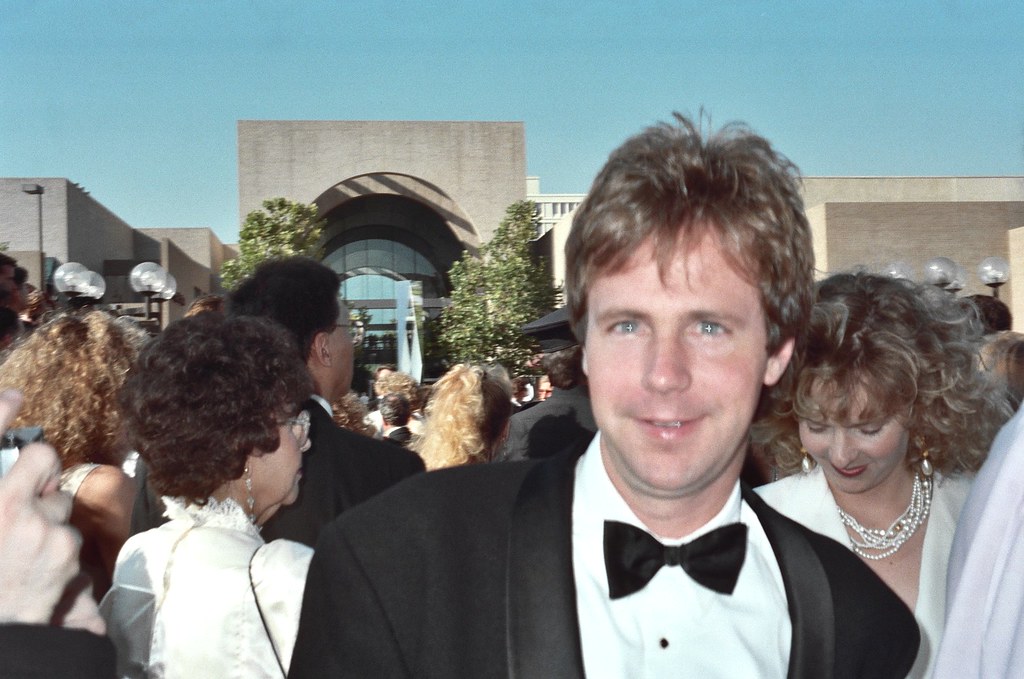
4. **The Master Of Disguise (Dana Carvey)**
Dana Carvey had an illustrious career in comedy, famously gracing the stages of *Saturday Night Live* and leaving an indelible mark with his unique brand of zany characters and impressions. Before, during, and after his SNL tenure, he also made a significant impact on the big screen, appearing in beloved classics such as *This Is Spinal Tap* and, notably, alongside Mike Myers in the highly successful *Wayne’s World* films. His talent for physical comedy and voice work was widely recognized.
This string of successes, however, encountered a major hurdle with the 2002 release of *The Master of Disguise*. The film was conceived as a vehicle for Carvey, designed to showcase his extensive repertoire of zany characters and his skill at embodying diverse personas. It was an opportunity for him to carry a film as its central star, leveraging the very comedic strengths that had made him famous on television and in ensemble movies.
Unfortunately, the execution of *The Master of Disguise* fell flat. While it did indeed showcase “Carvey’s zany characters,” the context succinctly adds, “but not much else.” This implies a lack of cohesive plot, genuine humor, or engaging narrative to support Carvey’s performance. The film was widely criticized for its weak script and juvenile jokes, failing to capture the magic of his previous work and ultimately disappointing audiences who had high expectations for his comedic genius.
The commercial and critical failure of *The Master of Disguise* proved to be a significant turning point in Carvey’s film career. The “success would run dry,” as the context states, indicating a noticeable decline in his visibility as a leading man in major cinematic releases. While he continued to work, the film severely hampered his ability to headline big-budget comedies, serving as a cautionary tale of how even a gifted comedian needs a strong script to truly shine.
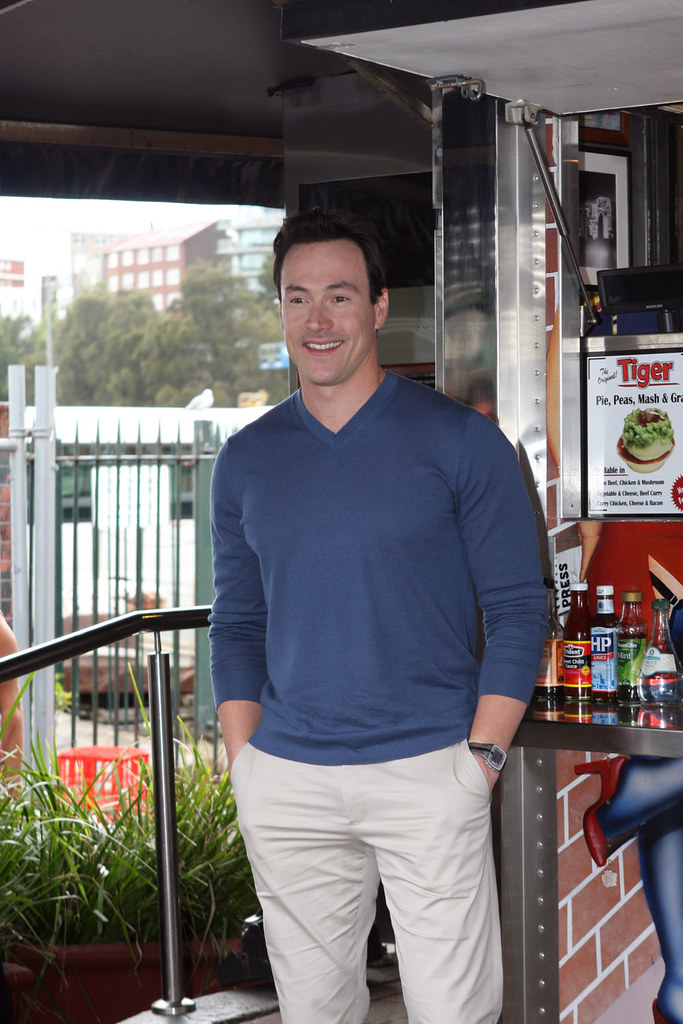
5. **Rollerball (Chris Klein)**
For a period in the late ’90s and early 2000s, Chris Klein appeared to be on the cusp of becoming a major Hollywood heartthrob and a reliable leading man. His performances in films like the critically acclaimed *Election* and the wildly popular teen comedy *American Pie* showcased a versatile actor capable of both nuanced drama and charismatic humor. He was the kind of fresh face that studios loved to promote, with a career that seemed destined for continued success.
Then came the 2002 release of *Rollerball*, a remake of a 1970s film of the same name. This project was envisioned as a high-octane action spectacle, a modernized take on a dystopian sports thriller, and a perfect vehicle to elevate Klein’s status to a more action-oriented star. The premise held promise for a thrilling cinematic experience, and fans were curious to see how the classic would be updated for a new generation.
Regrettably, the remake utterly failed to capture the essence or impact of its predecessor. The context straightforwardly states that Klein’s burgeoning career was “all ruined with the 2002 release of *Rollerball*,” further describing it as a “remake of a better and more cohesive ‘70s movie.” Critics lambasted the film for its convoluted plot, excessive violence, and a general lack of substance that diluted any potential social commentary found in the original. It was a chaotic and incoherent viewing experience that left audiences unimpressed.
The widespread negative reception and box office underperformance of *Rollerball* dealt a severe blow to Chris Klein’s momentum. What seemed like a promising ascent was abruptly halted. While he continued to act, his trajectory as a leading man in mainstream Hollywood never quite recovered the heights achieved after *American Pie*. *Rollerball* stands as a stark example of how a poorly conceived remake can not only fail on its own terms but also significantly impede the careers of its stars.
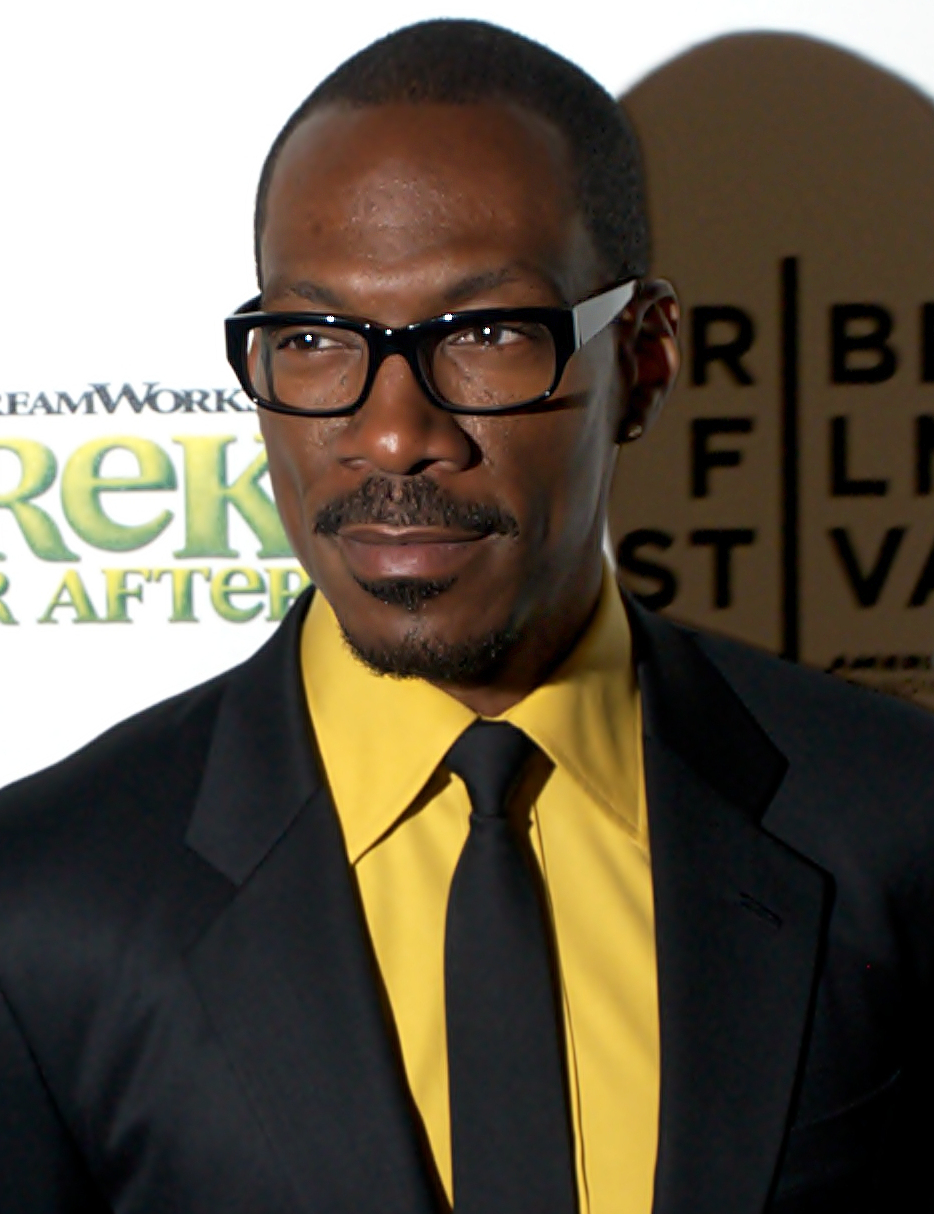
6. **Norbit (Eddie Murphy)**
Eddie Murphy is an undisputed legend of comedy, a performer renowned for his incredible range, quick wit, and unparalleled ability to create unforgettable characters. Many of his most beloved roles, in fact, feature him portraying multiple characters within a single film, a testament to his transformative talent. Classics like *Coming to America* and *The Nutty Professor* stand as prime examples of his comedic genius in this multi-character format, earning him widespread acclaim and commercial success.
However, even a comedic titan like Murphy can encounter a significant misstep, and for him, that came in the form of the 2007 comedy *Norbit*. In this film, Murphy once again embraced the challenge of playing several characters, including an unhappily married couple at the center of the story. The film aimed for the same broad appeal and humor that had made his previous multi-character endeavors so successful, promising another riotous display of his acting prowess.
But *Norbit* missed the mark spectacularly. The context highlights that it was definitely “no *Coming to America* or *The Nutty Professor*,” indicating a sharp divergence in quality and reception. The film was widely criticized for its reliance on crude humor, offensive stereotypes, and a generally mean-spirited tone. It failed to capture the charm or genuine laughter of his past successes, leading to a largely negative response from critics and audiences alike.
The film’s poor reception had an unexpected and highly publicized impact on Murphy’s career. The context notes that it “was received so poorly that people are still not convinced it didn’t cost him an Oscar for his *Dreamgirls* performance.” At the time, Murphy was a frontrunner for a Best Supporting Actor Academy Award for his acclaimed dramatic role in *Dreamgirls*. The release of *Norbit* so close to the Oscar nominations was widely believed to have tarnished his image and cost him the award, a truly rare and unfortunate intersection of critical failure and awards season heartbreak.
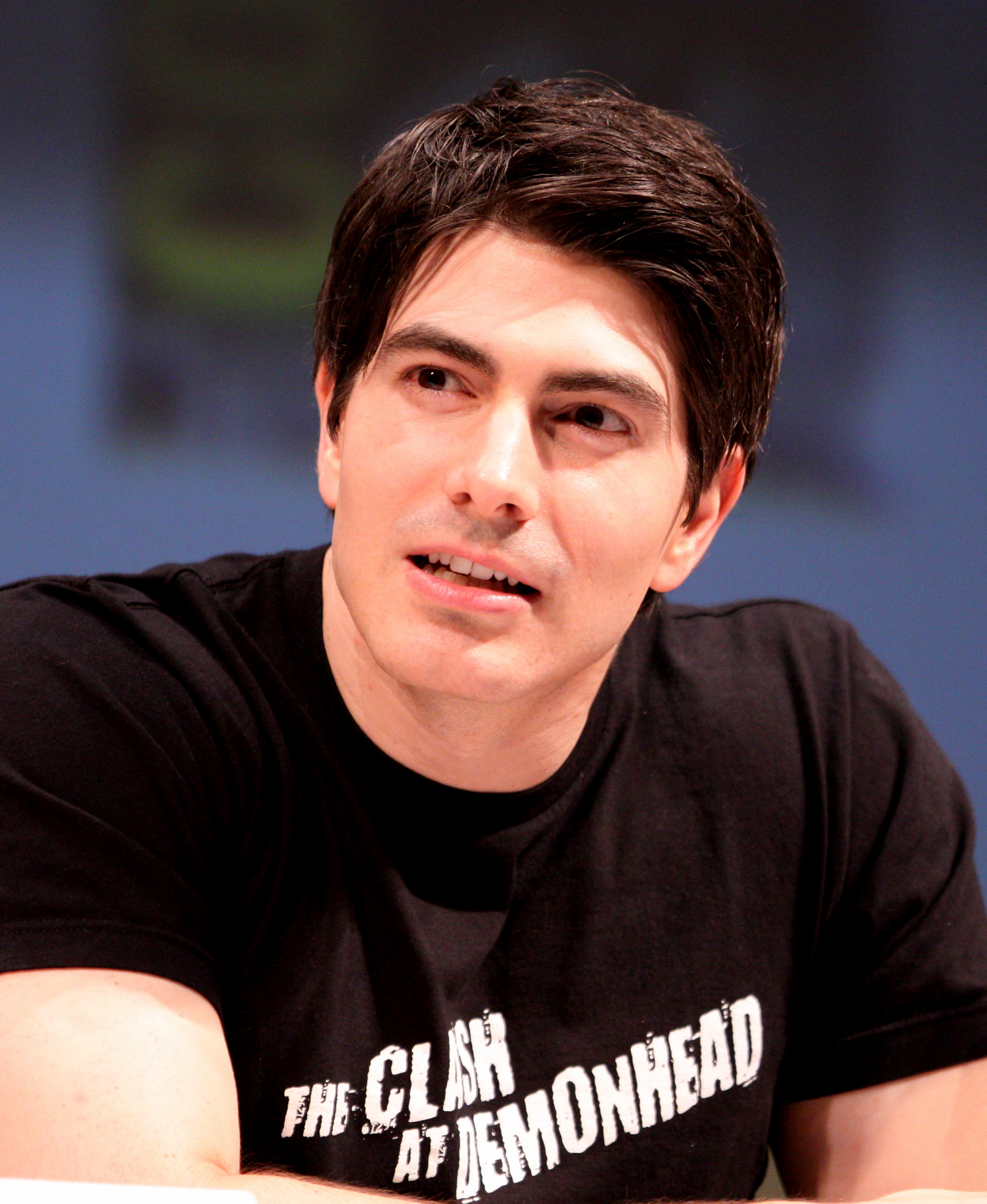
7. **Superman Returns (Brandon Routh)**
Stepping into the iconic red and blue suit of Superman is a monumental task for any actor, carrying the weight of decades of comic book history and beloved cinematic portrayals. Brandon Routh was given this incredible opportunity in the 2006 film *Superman Returns*. Prior to this, Routh was a relatively unknown actor, and taking on the role of the Man of Steel was expected to be his definitive breakout moment, launching him into the stratospheric heights of Hollywood stardom and establishing him as a household name.
The film itself was directed by Bryan Singer and aimed to be a reverent continuation of the Christopher Reeve *Superman* films, attempting to blend nostalgia with a fresh narrative. It garnered mixed reviews upon its release; while some praised Routh’s performance and the film’s visual effects, others found its pacing slow and its plot lacking the modern superhero dynamism audiences had come to expect. It wasn’t a universal disaster, but it certainly didn’t ignite the franchise in the way the studio had hoped.
For Brandon Routh, the movie’s somewhat lukewarm reception translated into a career that, while not entirely derailed, certainly didn’t take off as dramatically as expected. The context points out, “it’s not like Brandon Routh never acted again after playing the titular hero in *Superman Returns*, but it’s safe to say his career never reached great heights after the 2006 movie either.” He continued to find work, demonstrating his talent in various projects.
A notable example of his post-*Superman* work was his praised performance as Todd Ingram in *Scott Pilgrim vs. the World*. Despite this critical success and other roles, the immense expectations placed upon him by the *Superman* mantle were never quite fulfilled. The context concludes that “Routh hasn’t had a remarkable go of it after having such a grand start,” highlighting the lingering challenge of living up to the initial promise of being Superman and the subsequent difficulty in carving out a consistently high-profile career in mainstream cinema.
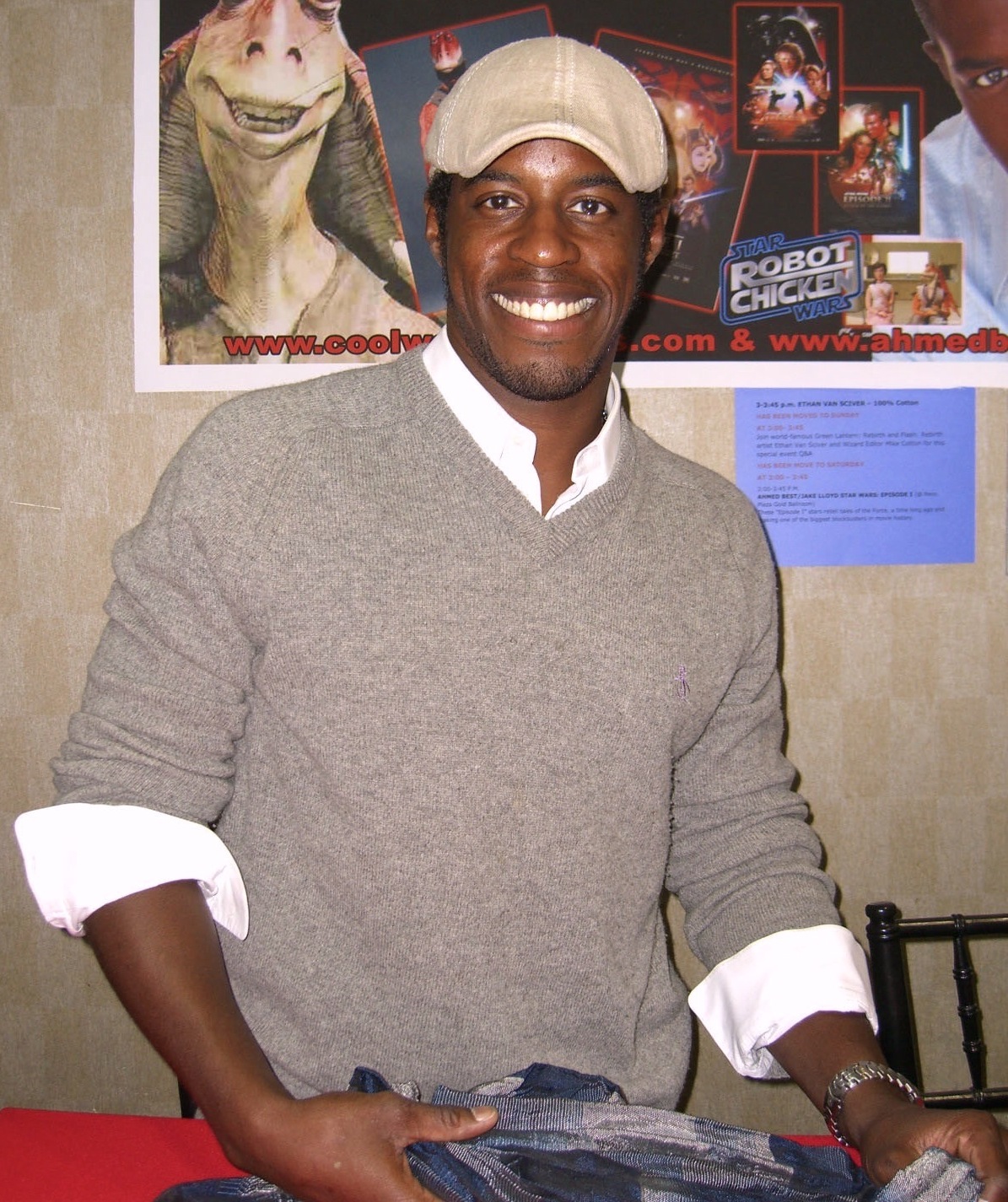
8. **Star Wars: Episode I – The Phantom Menace (Ahmed Best)**
Being cast in a *Star Wars* movie sounds like a dream come true for any actor, a guaranteed ticket to cinematic immortality and countless opportunities. Ahmed Best had this incredible chance when he was chosen to embody Jar Jar Binks in *Star Wars: Episode I – The Phantom Menace*. This was set to be his monumental debut, propelling him into the galaxy’s most beloved franchise.
Unfortunately, Best’s experience turned into a nightmare. The context clearly states, “It’s not Ahmed Best’s fault Star Wars Episode I – The Phantom Menace was so bad. It’s not Ahmed Best’s fault Jar Jar Binks has become one of the most detested characters in the galaxy far, far away.” The film, while a box office hit, was critically divisive, and Jar Jar Binks became the poster child for everything fans disliked about the prequels. The character was relentlessly ridiculed for being annoying, awkward, and, to some, racially insensitive.
The public backlash against Jar Jar, and by extension, Best, was incredibly harsh and personal. It transcended simple criticism, becoming a torrent of vitriol that profoundly affected Best’s career and mental health. The context succinctly notes that his “career was ruined by the 1999 prequel film.”
Despite his innovative motion-capture performance and genuine efforts, the negativity surrounding Jar Jar Binks became an insurmountable obstacle for Best. While he eventually found other avenues within the *Star Wars* universe and beyond, the initial impact of *The Phantom Menace* irrevocably altered his path as a mainstream actor, proving how a single role, even if not the actor’s fault, can lead to devastating career consequences.

9. **In The Cut (Meg Ryan)**
For years, Meg Ryan reigned supreme as Hollywood’s romantic comedy queen. Her sparkling performances in classics like *When Harry Met Sally…*, *Sleepless in Seattle*, and *You’ve Got Mail* made her a beloved figure, known for her charming, relatable portrayals. She was synonymous with feel-good cinema, and audiences adored her effortless blend of humor and vulnerability.
In a bold move to expand her repertoire, Ryan took on a vastly different role in Jane Campion’s 2003 erotic thriller, *In the Cut*. This was a deliberate effort to shed her rom-com image, tackling darker, more dramatic material as a woman entangled in a murder investigation. It was a risky artistic pivot, designed to showcase a grittier side to her acting prowess.
However, the film’s reception was lukewarm at best. The context points out that for “some reason, Jane Campion’s thriller about a woman getting wrapped up in a series of murders just didn’t work.” Critics were divided, and many found the film’s execution uneven or simply ineffective. Crucially, Ryan’s dramatic shift didn’t quite land with her established fanbase, who might have preferred her familiar charm over unsettling drama.
The failure of *In the Cut* to resonate broadly, coupled with its explicit content, seemed to cool her immense appeal. While not ending her career, it undeniably marked a turning point, severely hindering her ability to command the same level of mainstream attention. Her career never fully regained its rom-com heights, highlighting the challenges of a drastic image change without a clear critical or commercial win.
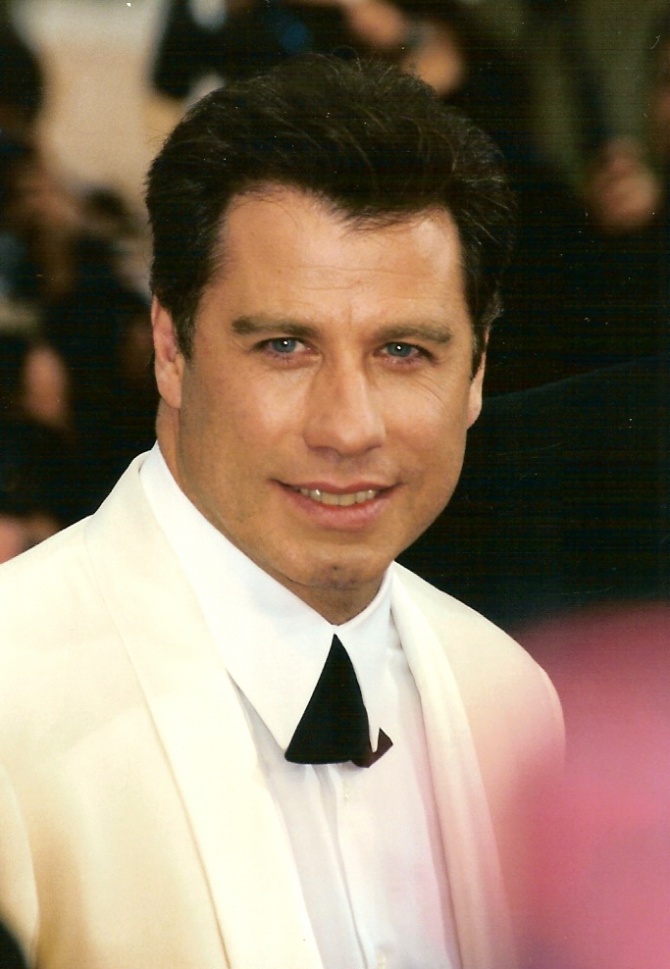
10. **Battlefield Earth (John Travolta)**
John Travolta orchestrated one of Hollywood’s most legendary comebacks with his iconic role in Quentin Tarantino’s *Pulp Fiction*. This revitalized his career, transforming him from a fading star into a celebrated, versatile actor once more. He was basking in newfound adoration, ready to conquer the box office with a string of new hits.
Then came the spectacular downfall: 2000’s *Battlefield Earth*. This sci-fi action epic, a passion project for Travolta based on L. Ron Hubbard’s novel, was meant to be a grand blockbuster. Instead, it became an immediate laughingstock. The context pulls no punches, describing it as “abysmal,” filled with “Dutch angles, terrible lines, and over-the-top performances.” It was a cinematic disaster of epic proportions.
The critical response to *Battlefield Earth* was historically brutal. It dominated the Golden Raspberry Awards and is still widely cited as one of the worst films ever made. Its staggering failure, both critically and commercially, turned it into a notorious example of creative misjudgment, a film so bad it transcended mere failure to become an event.
For Travolta, the fallout was severe. The context bluntly states, “Battlefield Earth, with all of its Dutch angles, terrible lines, and over-the-top performances was so bad that it canceled out all the goodwill John Travolta earned with Pulp Fiction not even a decade earlier.” This colossal misstep squandered his hard-won resurgence, forcing him into a lengthy battle to regain his credibility and making it much harder to secure prestige roles.
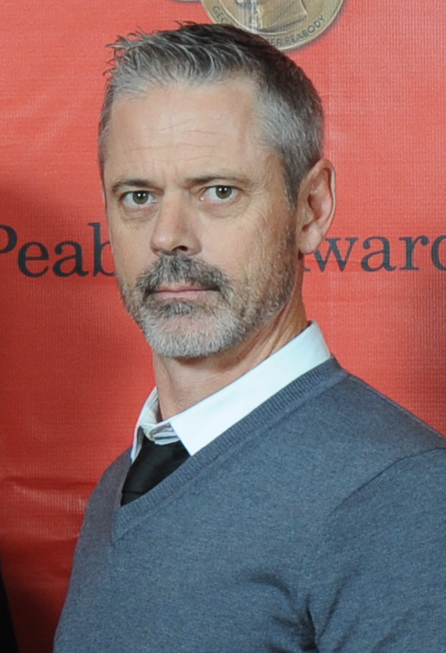
11. **Soul Man (C. Thomas Howell)** In the vibrant ’80s, C. Thomas Howell emerged as a promising young Hollywood star. His captivating presence graced iconic films like *E.T. the Extra-Terrestrial*, *The Outsiders*, and *Red Dawn*, showcasing a talent that suggested a bright future as a leading man. He possessed a youthful charisma that endeared him to audiences, hinting at a diverse and successful career ahead.
In the vibrant ’80s, C. Thomas Howell emerged as a promising young Hollywood star. His captivating presence graced iconic films like *E.T. the Extra-Terrestrial*, *The Outsiders*, and *Red Dawn*, showcasing a talent that suggested a bright future as a leading man. He possessed a youthful charisma that endeared him to audiences, hinting at a diverse and successful career ahead.
However, his promising trajectory was severely altered by the 1986 comedy *Soul Man*. In this controversial film, Howell’s character masquerades as a Black student to secure a scholarship. The premise, and particularly Howell’s portrayal in blackface, ignited immediate and furious condemnation. Despite any purported satirical intentions, the execution was widely perceived as deeply offensive and racially insensitive.
The backlash against *Soul Man* was intense. Critics and civil rights groups lambasted the film, creating a significant public relations nightmare for Howell. The controversy overwhelmed any artistic merit, branding the movie as a painful example of racial ignorance in cinema. For an actor still building his reputation, this level of widespread criticism was devastating.
The context starkly notes that “Howell’s been in scores of movies since, but most are direct-to-video or bargain bin material.” This marked a definitive end to his mainstream Hollywood stardom, relegating him to a career largely within lower-profile projects. *Soul Man* stands as a powerful, unfortunate lesson in how one deeply problematic role can permanently derail an actor’s professional standing and public image.

12. **Son Of The Mask (Jamie Kennedy)**
Jamie Kennedy, with his distinctive energetic and often wild comedic style, found a solid footing in Hollywood during the late ’90s and early 2000s. He brought laughs in films like *Malibu’s Most Wanted* and gained recognition in the *Scream* franchise, proving his knack for both broad humor and genre-savvy performances. His career seemed poised for continued success as a comedic lead.
Then arrived 2005’s *Son of the Mask*, a sequel that, as the context dryly puts it, “no one wanted.” The film was an attempt to recapture the magic of Jim Carrey’s 1994 hit *The Mask*. Kennedy faced the unenviable task of stepping into those oversized shoes, trying to reignite the chaotic, cartoonish energy that made the original a smash hit. It was an almost impossible challenge.
Despite Kennedy’s best efforts, the film was an unmitigated disaster, both critically and commercially. The context suggests that even with his talent, “the *Malibu’s Most Wanted* and *Scream* star just couldn’t do it (maybe the script is to blame).” Audiences and critics universally panned *Son of the Mask* for its juvenile humor, lack of originality, and general failure to live up to its predecessor. It quickly became a widely derided example of a bad sequel.
The spectacular failure of *Son of the Mask* dealt a severe blow to Kennedy’s career momentum. While he continued to work consistently, the context notes, “he never really rebounded” to the same level of mainstream visibility he enjoyed before this project. The film became a significant blemish on his résumé, making it considerably harder for him to secure leading roles in major comedies and stalling his ascent to greater stardom.

13. **Sahara (Matthew McConaughey)**
Before the glorious “McConaissance” era, where Matthew McConaughey earned widespread critical acclaim for his transformative roles, he was already a well-known presence in Hollywood. He had established himself as a charming leading man in both romantic comedies and action films, celebrated for his laid-back persona and undeniable screen charisma. Movies like *A Time to Kill* and *How to Lose a Guy in 10 Days* highlighted his potential as a versatile, bankable star.
In 2005, McConaughey headlined *Sahara*, a big-budget action-adventure based on Clive Cussler’s popular novels. This production was conceived as a potential franchise starter, combining exotic locales, thrilling action, and McConaughey’s star power. It appeared to have all the makings of a successful blockbuster, designed to solidify his position as a major action hero.
However, *Sahara* proved to be a profound disappointment. The context carefully states that while “not Matthew McConaughey’s worst movie, *Sahara* is far from being his best.” Critically, it garnered mixed reviews, often slammed for its confusing plot, uneven pacing, and generic action. More damagingly, it was a notorious box office bomb, failing to recoup its massive budget and becoming one of the most expensive flops of its era, compounded by behind-the-scenes controversies.
For McConaughey, *Sahara*’s failure was a considerable setback. It was, as the context aptly describes, “one of the straws that broke the camel’s back” during a period when his career seemed to be meandering. This dud contributed to a series of less successful films that ultimately led to his pivotal career re-evaluation and the acclaimed dramatic roles that defined his later resurgence. *Sahara* underscored the risks of big-budget projects and the crucial importance of discerning role selection.

14. **Abduction (Taylor Lautner)**
Taylor Lautner shot to global stardom as one of the definitive heartthrobs of the late 2000s and early 2010s, thanks to his role as Jacob Black in the phenomenon that was the *Twilight* saga. His impressive physical transformation and massive appeal to a young, fervent fanbase instantly made him an international sensation. He was Hollywood’s next big thing, with studios eager to harness his enormous popularity.
As *Twilight* reached its crescendo, Lautner aimed to prove his acting range beyond the supernatural romance genre. In 2011, he took the lead in *Abduction*, an action-thriller designed to showcase his capabilities as a leading action star. The premise was intriguing: a young man discovers his own baby photo on a missing persons website, inadvertently stumbling into a dangerous conspiracy. It was a clear bid to transition him into a more mature, physical role, leveraging his fan base.
Unfortunately, *Abduction* was a resounding failure, both critically and commercially. Critics universally panned the film for its predictable story, stilted dialogue, and Lautner’s perceived lack of screen presence in a demanding lead role. It failed to connect with audiences, and its box office performance was dismal, particularly given Lautner’s immense *Twilight* fame. The film served as a stark reminder that franchise popularity doesn’t guarantee solo stardom.
The context explicitly suggests, “we probably have *Abduction*, his 2011 action thriller to blame” for his subsequent disappearance from major spotlights. While the *Twilight* saga wrapped up a year later, *Abduction* undeniably cooled his momentum as a potential leading man. His later appearances in films like *Grown Ups 2* and *The Ridiculous 6* further solidified a career trajectory away from prominent starring roles, effectively “finish[ing] off what *Abduction* started.” It’s a classic example of a promising young actor’s rise being abruptly halted by a poorly received project.
As we’ve journeyed through these cinematic cautionary tales, it’s clear that Hollywood’s glittering facade often hides a brutal truth: even the brightest stars can stumble, and sometimes, those missteps are catastrophic. From misguided passion projects to ill-fated franchise attempts and problematic creative choices, these films serve as stark reminders that a single cinematic misstep can irrevocably alter an actor’s path, forcing them to redefine their careers or, sadly, fade from the limelight. It’s a tough business, folks, but these stories of incredible highs and devastating lows are a crucial, sometimes heartbreaking, part of the Tinseltown narrative, proving that in the unpredictable world of movies, anything can happen – for better or for worse. So next time you’re scrolling through JustWatch or Fandango for your next movie night, take a moment to remember the stars who risked it all and sometimes, quite dramatically, lost it all.

